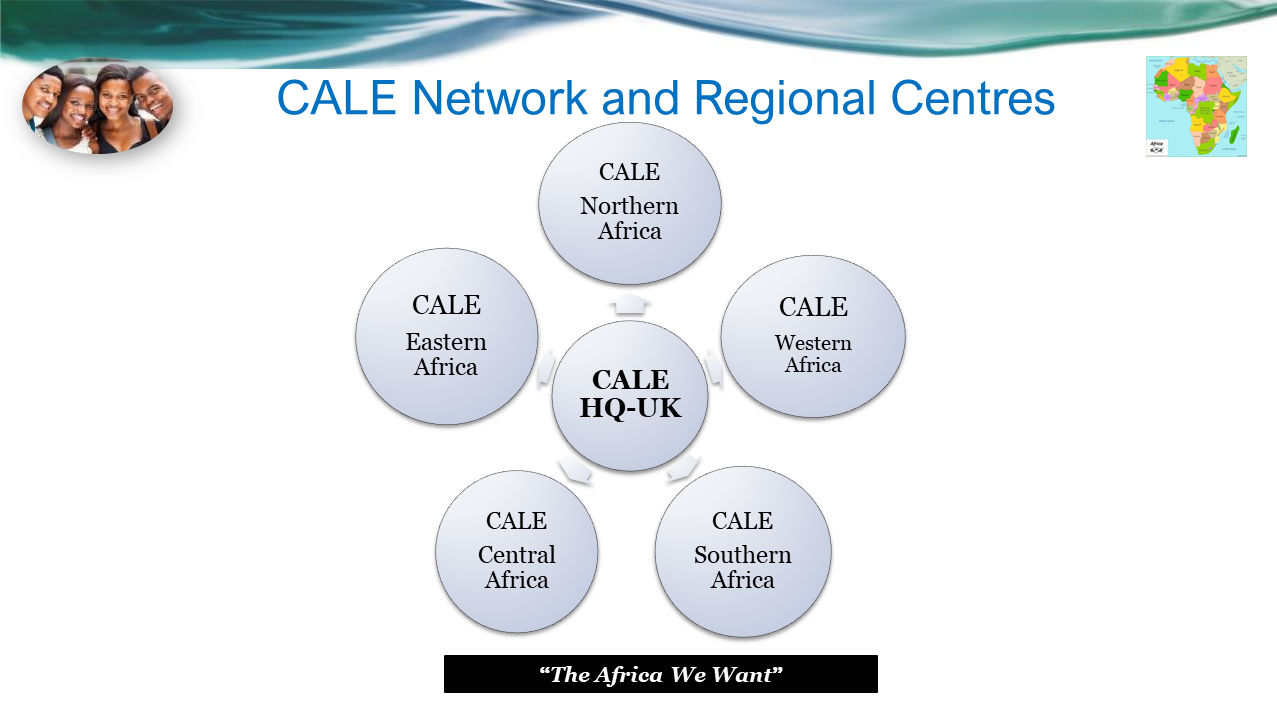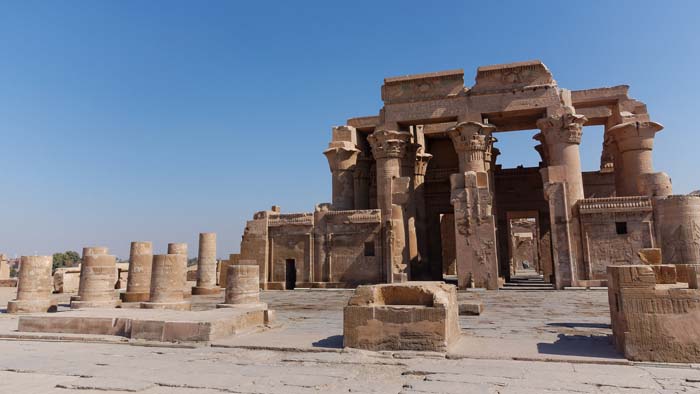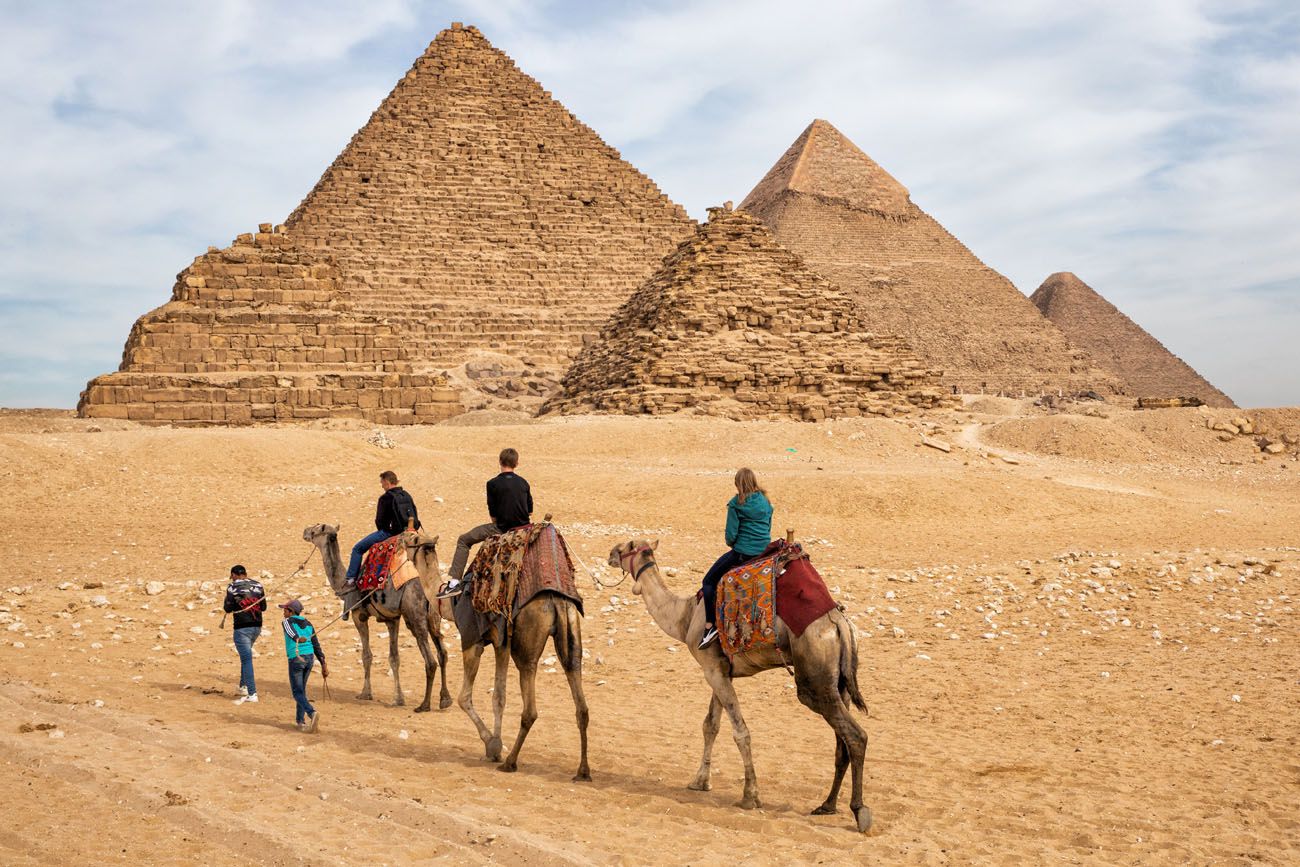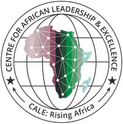Background to the Challenges
“There is a serious disconnect between education and enlightenment in African societies.”
(Dr Alex Appiah)

“Mind the gap! Mind the gap!”
Anyone who has travelled on the underground transport network in London, would not miss the regular refrain of the automated announcement system at most of the tube station stops “Mind the gap! Mind the gap!“ The London Transport operators have taken time to prepare this recorded message to warn passengers getting off and on the tube to watch out for the gap between the adjacent platform and the train to avoid the possible accident of falling through the gap.
In the unfortunate situation of such occurrence, the person risks serious limb and possible head damage, emergency shutting down of the whole line, disruption of the movement of the thousands of travellers going to work, meeting appointments, catching connecting buses, trains and overseas flights or simply returning home after a long day’s work and corresponding cascading economic impact on businesses and the broader society.
Although I have heard this announcement many times, my attention was poignantly drawn to this particular refrain on the 11th of June 2015, when I was travelling on the Victoria line underground train en route to Heathrow Airport to catch a flight to Accra, Ghana. As I was contemplating my journey and the need to arrive at the airport in time for my flight, I heard a clear voice or thought in my mind, when the automated announcement was repeated after a few stops saying:
“This is the problem with your people in Africa, there is a gap between your education and enlightenment, which if not bridged would continue to prevent the continent’s growth and needed development.”
This got me thinking about African education, and why we continue to produce a workforce that is good at following instructions but lacks moral judgement, problem-solving, critical and creative thinking skills and the needed enlightenment that would truly transform the continent’s fortunes.
Why am I telling this story?
After much thinking and discussions with concerned fellow professionals of African descent about the plight and the challenges facing the continent, particularly, sub-Saharan Africa, it has become clear that all over the continent there is slow or lack of real transformative progress due to lack of visionary leadership, deep patriotism, sense of collective welfare, perennial cultural divisions, ineffective regulatory bodies, governance mechanisms, outdated educational systems and long-term focus on infrastructure development.
In spite of the many years of western-styled democratic governments imposed on Africa by the former colonial masters, the structural adjustment policy reforms dictated by the Bretton Wood institutions established largely for their own benefit and the so-called ‘rule of law’ in Africa modelled on the western colonial powers judicial systems, many African countries, particularly, sub-Saharan Africa remain impoverished. There is economic mismanagement based on short-termism; corruption has become endemic in both public and private enterprises; health infrastructure and services are weak in many countries and the ruling elites continue to enrich themselves at the expense of national development and rejuvenation.
In many of these countries, western donor countries spend millions of their tax payer’s monies on development aid projects, which are supposed to improve lives, education, and health care systems and provide good platforms for national growth and development. However, these so-called foreign benefactors provide aid money with strings attached that are supposed to ensure the powers that be do not diverts the funds into their overseas private accounts or use them to fund their political agendas.
Although these foreign donors give their monies to Africa with good intent to largely help Africa’s poor, there is little to show for the vast misguided donor monies poured into Africa for over seven decades. There are several reasons for these poor outcomes of foreign donor money in Africa. Here are three key reasons:
- Donor monies create a culture of dependency
The benefits of foreign aid to the effective development of recipient countries have always been questionable. Amongst, the many reasons for foreign aid[1] it is widely acknowledged that foreign aid is ‘not a good thing’ (Andrews, 2009).[2] Donor funds are largely believed to create a culture of dependency that hinders ingenuity and entrepreneurship in the African psyche. The prevailing thinking of “we have this problem bring us aid to solve it” is a wrong mindset that has hampered Africa from striving for “homegrown solutions.”
Many African governments and officials are always looking to foreign donors to bring their money and foreign-purchased goods and equipment to solve their local problems. This mindset robs the African from being creative in finding solutions to local problems through building capacity and motivating innovation culture on the continent.
Secondly, this donor dependency also subliminally encourages the attitude of carelessness and a lack of maintenance culture in many African societies. They do not understand the value of things paid for by donor money.
Thirdly, quite often, this equipment and machinery also require parts from overseas to service and maintain them. More than often, when the period of the end of the donor-funded project; that begins the fast decline and falling into states of disrepair the machinery and equipment purchased with foreign aid.
- Embezzlement of development funds
Severe human factor decay has been cited as a major cause of embezzlement, bribery and corruption. Embezzlement, bribery, and diversion of development funds for either personal gains or political causes are reported as both systemic and endemic in African countries. The misappropriation and flight of productive investments and capital formation by clever African politicians and government officials to developed countries lead to economic stagnation and decline. This is one of the most critical problems that affect how far development aid monies go in Africa. According to Hope (2020) about US$148bn representing about 25 per cent of Africa’s average GDP is drained out of the continent through various corrupt activities. Furthermore, up to 50 per cent of African tax revenues, and over US$30bn of annual aid money are lost to corrupt practices on the continent.
- The wrong focus of foreign development aid programmes
Foreign development aid to Africa over the years has produced mixed effects. Whilst some purport that overseas development assistance has had a positive long-run impact on Africa’s macro economy, there is a broader perception that foreign aid has not been helpful to Africa’s development. Foreign aid has perpetuated the image of Africa as a “helpless child” and a “continent of beggars.”
It has also been found to deteriorate economic and institutional governance in Africa; negatively impacted the quality of regulation, government effectiveness, anti-corruption control, and the rule of law. The objectives of most foreign aid, even technical cooperation assistance have not always been about building local capacity and enabling technology transfer that would allow the recipient countries to develop their productive capabilities and competitiveness. The underlying objectives of foreign aid is to buy influence and to “promote donor’s commercial, political and strategic interests” (Andrews, 2009). Most foreign aid technical assistance projects come with large expatriate components, which consume significant portions of the aid amounts. They are therefore perceived in certain quarters as a means for donor countries to create overseas job opportunities for their own nationals, who do not have places in their own countries.
There are also the issues of lack of involvement and proper consultation of the intended local beneficiaries of aid programmes, who most often tend to be uneducated and voiceless in their societies. Bureaucrats and technocrats in the national government and parastatals from the cities would pay a quasi-flying visit to these areas and talk to a few opinion leaders or the loud voices in the area and from there design and construct the project from their city offices, entirely removed from the intended beneficiaries and without their real needs and inputs at the heart of the neatly crafted projects. No wonder there are reports of millions spent on foreign aid projects supposedly no one uses.
A recent report in The Times (UK) newspaper dated 11th June 2015 alleged that the Independent Commission for Aid Impact (ICAI) authored document reveals that two ice factories constructed to stop fishermen’s catches from going to waste as part of a £6 million project designed to boast the income of Madagascan fishermen are not being used.
A large proportion of donor monies is spent in the donor countries through the purchase of services and equipment reducing their impact on the economies of the beneficiary countries. The foreign aid has a dampening effect on local governance and influences on government’s ability oppose the interests of donor countries which are unfavorable or damaging to local people’s and their economic welfare.
Africa has a peculiar problem of individualism!
This has to do with how we think. Most Africans thinks about now instead of tomorrow. The African tends to think about ‘I’ instead of ‘Us.’ The culture of Individualism (welfare of immediate family or clan) instead of collectivism (welfare of nation or state) ‘seems to be endemic in the thinking of the African.
I had a recent unforgettable experience travelling from London to Accra through Casablanca on an African airline. The flight was almost one hour late in departure. On board, it was particularly noticeable the lack of attention or poor customer service offered by the cabin crew. I remember pressing the passenger call for attention light without anyone coming over to ask what I needed, I directly asked two air host and hostess, who were passing by to kindly bring me a drink, which none of them returned with the drink! Naively I had expected that I was going to be offered hotel accommodation for the over 5 hours transit time from the 9.30pm scheduled arrival in Casablanca to the 2.30am departure time to Accra. On arrival, there was no airline official on the ground to inquire about the transit arrangement.
To the African, particularly, those given the privilege of power or are in control of the public purse, the key consideration is “how much can I take for myself without being caught?” There seems to be a huge gap between education and the enlightened understanding of the African. Most Africans are given an education (book knowledge) which does not translate to an awakening or acquisition of inner light and a new way of thinking, which transforms and liberate our way of thinking. There are many African leaders and technocrats who pride themselves with their western-styled education and higher degrees but are incapable of solving pressing problems facing their countries.
Creativity and adventurism
African education does not foster creativity and adventurism. Conversely, the educational system in the UK stimulates a culture of innovation and creativity from the foundation and early years. There are countless examples including the inventiveness and creatively turning old disused mine or quarry pits into the Eden Project – the world’s largest biome which has a collection of plants from all over the world; a profitable overhead wire cable business and the mine pits into trampoline and drop shoots! Africa needs a new mindset and educational systems that develop creativity and innovation from childhood.
Each of these subsidiaries would be led by a director with specific calling and professional expertise in the area. We believe collaboration and effective partnership will accelerate the transformation agenda of Africa. We therefore actively encourage activists, donors, philanthropists, other training and development organisations to join us in strategic thinking to formulate a collaborative working plan for Africa.
From our UK headquarters, we would to establish regional centres in the five regional quadrants of Africa namely:
- North Africa (Egypt)
- East Africa (Kenya/Ethiopia)
- West Africa (Ghana)
- Central Africa (Tanzania/DRC) and
- Southern Africa (South Africa)
 These regional centres will focus on the specific challenges and needs of the ethnic groupings of the countries in that sub-region. Largely, people from these sub-regions share common languages, cultural, and socio-political values. They also tend to have shared colonial past that have shaped their systems, structures and modus operandi.
These regional centres will focus on the specific challenges and needs of the ethnic groupings of the countries in that sub-region. Largely, people from these sub-regions share common languages, cultural, and socio-political values. They also tend to have shared colonial past that have shaped their systems, structures and modus operandi.
We need enlightened and great solution-minded people from all over the world join us with their selflessness, ideas, skills and resources to realise our dream of a progressive, highly developed and constantly innovating Africa that thinks about its image in the world, its young people and the unborn posterity. If you would like to know more or join our think tank to create innovative solutions that Africa needs, please contact us today. Please, register your interest and offer your expertise for the Africa We Want.
Throughout time and recorded history, different nations and continents have risen to prominence through socio-political development and economic growth. Such phenomenal periods of societal transformation have advanced global well-being and improved the lives of their citizens. The rise of nations and continents is clearly within the divine plan. The Bible talks about how God has set up the geographical boundaries, rise and fall (development), and the destinies of nations in the world.
“From one man he created all the nations throughout the whole earth. He decided beforehand when they should rise and fall, and he determined their boundaries.”
(Acts 17:26).
There is therefore a divinely appointed time for the rise to prominence and development of each continent. Looking from a historical perspective on continental development, Africa – the so-called ‘Forgotten and Dark Continent’ remains the only continent yet to experience significant the levels of socioeconomic development other continents have gone through that transformed the lives of their citizens, although there is historical evidence of successful kingdom on the African continent.

We are calling on scholars, thinkers, entrepreneurs, philanthropists, global development experts and governments, in particular, those with real interest in African development to understand, where we are in the cycle of the rise of nations and continents. It is time to cease the global geopolitical dynamics to focus on the “genuine transformational development” and rise of Africa to its place of global prominence.
In view of the different interpretations of what development is, it is important to clearly define the transformational development agenda being proposed by CALE, which is both qualitative and quantitative. We have adapted and adopted the definition put forward by Prof. Okumu as follows:
“Transformational development is a process where a country or people group progressively move towards achieving better quality of life, improved health and educational opportunities, greater inclusion in the decision process, fairness, equitable justice and forgiveness, and freedom in cultural expressions for all of its members.”
There is an urgent need for a “Focus on Africa”, so that energy and resources can be focused at the right places to bring about the desperately needed transformational development of all the nations and people of Africa.
Continental Development
Historically, this started with Asia, the largest and most diverse continent. It occupies the eastern four-fifths of the giant Eurasian landmass. In the early centuries, Asia produced strong economic empires such as Tang Dynasty and the Ottoman Empires. It has been at the forefront of human civilization and is the birthplace of all the world’s major religions. Currently, it has very rich economies and high-income countries including Japan, South Korea, India, China, Israel, and the Persian Gulf states of Kuwait, Qatar, and the United Arab Emirates.
 This was followed by the renaissance of Europe that occurred between the fourteenth and sixteenth centuries when there was a great revival of literature, painting, science, commerce, and art. Europe experienced unprecedented economic transformation and development in the 19th century between the 1780s and 1849, which were precipitated by two great events: the French Revolution (1789), and World War I (1914). During this period, Europe dealt with the forces of political revolution and embarked on the Britain-led Industrial Revolution.
This was followed by the renaissance of Europe that occurred between the fourteenth and sixteenth centuries when there was a great revival of literature, painting, science, commerce, and art. Europe experienced unprecedented economic transformation and development in the 19th century between the 1780s and 1849, which were precipitated by two great events: the French Revolution (1789), and World War I (1914). During this period, Europe dealt with the forces of political revolution and embarked on the Britain-led Industrial Revolution.
A fuller industrial society emerged, including new forms of states and of diplomatic and military alignments. These events brought about the development of basic cultural trends, which ran through the entire continent including new literary styles, the spread of science, increasing interconnections, and more general expansion of commercial activity. In communication, the invention of the telegraph allowed the faster exchange of news and commercial information. It must be pointed out that this economic and industrial growth was not uniform throughout the whole of Europe as the nation-states dealt with their internal challenges.
The rise of Europe led to nation-sponsored global exploration and discovery of distant land in search for riches and trading commodities. Latin America was conquered and colonized by the Spaniards and Portuguese from the late 15th through to the 18th century. The rise of Latin America was dominated by the export–import trade largely through the exchange of mined American precious metals and sugar for European cloth, iron, manufactures, and other goods.
North America, the third largest continent of the world referred to as the New World rose to prominence after the European colonisation which began in the 16th Century by the Spanish and the French. Later, the British took over and brought in millions of freemen settlers seeking land of their own, businessmen trying to found new enterprises, mill owners, craftsmen, professionals, and workers eager to make the most of their own skills. This continent has seen the most remarkable economic transformation in human history since about 1700. During much of the 20th century and into the 21st, the United States has been the world’s dominant power in terms of financial resources and economic influence.
Australia, the smallest continent and one of the largest countries on Earth, since its colonisation in the 18th Century by Britain has grown to become a wealthy economy depending heavily on agriculture and mining. Since World War II, the continent’s growth in manufacturing and services and especially in mineral exploitation has been the spectacular developments. Australia is one of the high-income countries of the world with a very high standard of living for its citizens.
The only remaining continent yet to a rise to significant global prominence, and experience a transformational agenda that improves the wellbeing and economic lives of its people in this cycle of divine appointment is Africa. Sadly, the colonial experiences of Africa unlike the other continents left it impoverished of industrial and technological capabilities, as its rich human capital and natural resources, where siphoned away to through the trans-Atlantic slave trade to feed the development of western countries in the northern hemisphere. Africa’s human intellectual capital was not developed. The institutional structures and the educational systems set up and controlled by Africa’s colonial powers only made us assimilate foreign information. The time for the African renaissance must be now. We therefore need to address the challenges facing the rich African continents growth development into prominence.

